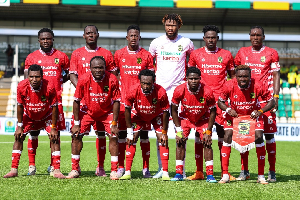The Institute for Democratic Governance (IDEG), has urged the political parties to develop vibrant internal structures and research units, which would help transform their manifestoes into feasible development programmes.
Dr. Emmanuel Obliteifio Akwetey, its Executive-Director, said the situation where the parties seem to be pre-occupied with winning elections and power than working to alleviate the plight of the people through well-coordinated programmes and policies would have to change.
He was speaking at a three-day workshop held under the theme “Towards electoral reforms and integrity of the 2016 elections” for selected journalists from across the country.
It was meant to build their capacity to play their expected roles well for the successful conduct of the upcoming general polls.
Dr Akwetey said pertinent issues bothering on job creation, infrastructure and education development, macro-economic management, and tackling corruption must engage their attention.
He noted that those challenges were causing majority of the people to lose confidence in the political system as they were simply becoming fed up with the largely unfulfilled election promises.
“They are being let down – their expectations and aspirations are not being met,” he said.
He cautioned that this could be a disincentive to the strengthening of multi-party democratic governance.
He underlined the need to draw useful lessons from relatively peaceful nations, which went through political turbulence for failing to address the people’s needs.
The programme was organized by IDEG together with Civic Forum Initiative (CFI), United Nations Education, Scientific and Cultural Organization (UNESCO) and some other organizations.
The workshop also sought to deepen the participants understanding of the IDEG’s proposed constitutional reforms and amendments, to improve the current political structure and system and enhance the peace and stability of the nation.
Dr. Akwetey said though Ghana had successfully gone through six major elections under the Fourth Republican Constitution, “we still need to fine-tune all rough edges to clear doubts in the system”.
The nation, he said, must look critically at issues such as the winner-takes-all concept, appointment of chief executives for the decentralized assemblies, neutrality of public sector institutions, power management, economic stability and electoral procedures and systems to help ensure social harmony and political stability.
Politics of Wednesday, 12 November 2014
Source: GNA













